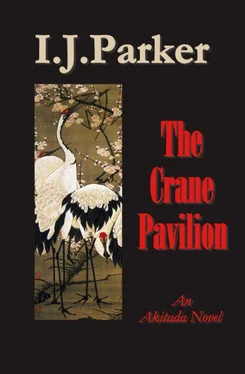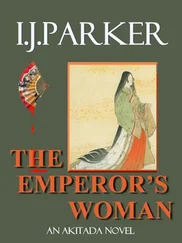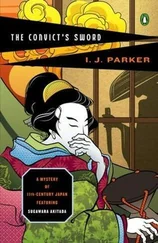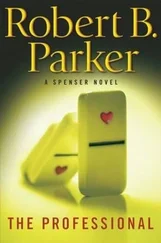I. Parker - The Crane Pavillion
Здесь есть возможность читать онлайн «I. Parker - The Crane Pavillion» весь текст электронной книги совершенно бесплатно (целиком полную версию без сокращений). В некоторых случаях можно слушать аудио, скачать через торрент в формате fb2 и присутствует краткое содержание. Жанр: Исторический детектив, на английском языке. Описание произведения, (предисловие) а так же отзывы посетителей доступны на портале библиотеки ЛибКат.
- Название:The Crane Pavillion
- Автор:
- Жанр:
- Год:неизвестен
- ISBN:нет данных
- Рейтинг книги:5 / 5. Голосов: 1
-
Избранное:Добавить в избранное
- Отзывы:
-
Ваша оценка:
- 100
- 1
- 2
- 3
- 4
- 5
The Crane Pavillion: краткое содержание, описание и аннотация
Предлагаем к чтению аннотацию, описание, краткое содержание или предисловие (зависит от того, что написал сам автор книги «The Crane Pavillion»). Если вы не нашли необходимую информацию о книге — напишите в комментариях, мы постараемся отыскать её.
The Crane Pavillion — читать онлайн бесплатно полную книгу (весь текст) целиком
Ниже представлен текст книги, разбитый по страницам. Система сохранения места последней прочитанной страницы, позволяет с удобством читать онлайн бесплатно книгу «The Crane Pavillion», без необходимости каждый раз заново искать на чём Вы остановились. Поставьте закладку, и сможете в любой момент перейти на страницу, на которой закончили чтение.
Интервал:
Закладка:
“His Excellency believes that his daughters are better served being taught by their mothers. Only the boys need to learn to read, write, and speak Chinese.”
Another painful reminder of Tamako. She had received an excellent education from her father, who had been a professor at the Imperial University. Their own daughter Yasuko had benefited greatly from this. Even he had been impressed by how well she wrote when he received their letters. Tamako’s death was a great loss to the children. Perhaps Yoshi was too young, but surely Yasuko must miss her terribly. He sighed.
The tutor moved restlessly, probably wondering at the long silences in their conversation. Akitada pulled himself together. “I’d like my daughter to receive the same instruction as boys of her age,” he said. “And there will be another boy. He is Yuki, Tora’s son. He’s a year older than my daughter, but I don’t know how much instruction he has had. It will be as well if he joins the lessons.” He was aware how negligent he had been. Not only had he not kept up with his own children, but he had made no provisions for Tora’s son. Heaven forbid Yuki should grow up illiterate like his father.
Motonari bowed. “As you wish, your Excellency. But as for teaching Chinese to young ladies …”
“Why not? I believe she may already have some rudiments. She was taught by her mother who was the only child of a professor at the Imperial University.”
“Ah, I see. My salary is paid by the superintendent, so there is no charge.”
“Nonsense. You will receive ten pieces of silver for a month’s work. If the superintendent can spare you for two hours a day, I would be grateful.”
The young man flushed with pleasure and bowed very deeply. “Thank you, sir. I could start now, if it’s convenient” he offered.
Akitada rose. “Very well. After their lessons, I hope you will set them work to do until the next day. Now let me introduce you to the children.”
They took the east gallery to Tamako’s pavilion. It was still a very difficult journey for Akitada. The knowledge that she would never again be found in her room or garden twisted his stomach.
Oyuki was inside with some sewing. Perhaps it was another gown for Yasuko. Akitada tried not to look at the fabric. If it was one of Tamako’s gowns, it would bring back memories. The children were outside, kicking a kemari ball around. He called them in. Yuki had grown remarkably tall in the past months. Akitada explained about the lessons and made the introductions.
The children looked aghast. Yuki said quickly, “Well, that leaves me out. Bye.” He was almost out the door, when Akitada said, “No, Yuki. You, too. It’s time you stopped wasting your days with play.”
Yuki looked offended. “I help in the stables, sir.”
“Yes, I know, but I also want you to learn to read and write. So come back here. Master Motonari has kindly offered to start teaching all of you. He also teaches the sons of Superintendent Kobe so you must work really hard to make a good impression. Will you do this?”
The children nodded. Yoshi stared at the tutor. He had evidently become speechless at the notion of lessons, but Yasuko smiled and made a little bow to the young man. “Welcome, Master Motonari,” she said. “Will you teach me also?”
The tutor smiled. “Yes, Lady Yasuko. Your father wishes it.”
Reassured, she glanced up at her father. “I will work extra hard, Father. For Mother’s sake.” Her eyes filled with tears.
Akitada choked on his own grief, briefly touched her head, and turned to flee. His escape was preempted by the arrival of his sister, who had three of her children with her.
Akitada’s irritation served to stifle the sickness that had seized him. He took a deep breath. “Akiko,” he said sharply, “You must let me know your plans in the future. This is Master Motonari who has come to start the children’s lessons. As they are here, your brood may benefit by joining them. You and I will go to my room.”
Akiko opened her mouth to protest, then changed her mind. She greeted the tutor politely, instructed her three, two boys and a girl, to behave themselves and be quiet, and then left with Akitada.
“Well,” she said as they walked along the gallery, “that was a very rude greeting when I’m doing my best to help your children cope. And I find you making things worse for them. The loss of their mother is much too recent to start their lessons again. You have always been too strict in that regard. I hope you aren’t making another mistake.”
Akitada stopped. His sister’s lackadaisical attitude toward her own brood inspired no confidence in him. On the other hand, she had touched a very painful memory. Just before his firstborn, Yori, fell ill with smallpox, he and Tamako had had a serious disagreement over his excessive strictness with the boy’s studies. This had added to his guilt after the child died. Now it also added to his grief of having lost the boy’s mother.
Akiko’s eyes widened when she saw his face.
He said in an unsteady voice, “You’ve been very kind to look after the children so far. I am grateful. Now I’m trying to do my best to take over. Perhaps it’s too soon, but Kobe didn’t think so. You must let me do the best I can, Akiko. Believe me, I’d much rather leave all of this-he gestured vaguely around-to you and others.”
His sister reached for his hand. “I know,” she said, her voice soft. “I’ve been worried about you. You must not give in.” She squeezed his hand. “Never give in, Akitada. She would not have wished it.”
He felt the tears well up and turned away to walk to his room, her hand still in his.
It had started to rain. In the courtyard below, a woman passed, Genba’s wife Ohiro, with one hand resting protectively on her belly while the other pulled her skirt over her head. He had noticed that she was pregnant, but neither Genba nor Ohiro had come to tell him. They were probably afraid to share their happiness while he was grieving for Tamako.
The tides of life, he thought. Death and birth, an end and a new beginning. It went on and on. He was so weary of the struggle.
And outside the rain fell as if the heavens grieved the coming death of the year.
10
The next day, Saburo found the Nakamura house easily. It shared a street with similar merchants’ houses, ample in size and well-kept, with shops in front and living quarters in back and above. In this case, the shop was closed. No wonder, since the family had just been informed of the owner’s murder.
Saburo went closer and peered through the shutters at a dim interior. He made out shelves with assorted objects, many of them ceramics and wooden boxes. He decided to pound on the shop door. Nothing happened, and he pounded again.
Finally, he heard a voice. “Go away! We’re closed.”
He shouted, “I take it, the police have informed you. I have some additional information about Nakamura-san’s death.”
After a moment, he heard a rattle, and then the door opened a crack. A young man with somewhat bulbous eyes and a mustache peered out. “Who are you?”
“Saburo. I’m an investigator and work for Secretary Sugawara of the Ministry of Justice. I was in the Daikoku-yu after your father’s murder and questioned people. You can’t always take the word of a constable for what happened.”
The bulbous eyes narrowed, and the door opened far enough to admit him.
“It was a terrible shock,” the young man said mournfully. “You cannot imagine. Come back with me. My sister and my father’s partner are at wits’ ends.”
They passed through the dim shop. Saburo glanced at it. It struck him that the shelves held only a small selection of objects, though these might, of course, be very rare and expensive. Still, it confirmed his impression that the curio shop was merely a front for a thriving money-lending business, which Nakamura had carried out not here but on his daily visits to the business and amusement quarters.
Читать дальшеИнтервал:
Закладка:
Похожие книги на «The Crane Pavillion»
Представляем Вашему вниманию похожие книги на «The Crane Pavillion» списком для выбора. Мы отобрали схожую по названию и смыслу литературу в надежде предоставить читателям больше вариантов отыскать новые, интересные, ещё непрочитанные произведения.
Обсуждение, отзывы о книге «The Crane Pavillion» и просто собственные мнения читателей. Оставьте ваши комментарии, напишите, что Вы думаете о произведении, его смысле или главных героях. Укажите что конкретно понравилось, а что нет, и почему Вы так считаете.












